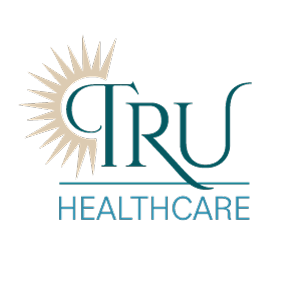Post-traumatic stress disorder (PTSD) affects thousands of veterans who have bravely served their country. The invisible wounds of trauma can feel overwhelming, but support is available, and no veteran should face this battle alone. Many paths to recovery exist, from therapeutic treatments to comprehensive support services like home health care. If you or someone you love is seeking services for veterans with PTSD, knowing the options can make all the difference. Our home health services for veterans with PTSD focus on compassionate care and support, helping individuals manage symptoms and improve their quality of life.
PTSD Treatment Options
One of the most important steps in managing PTSD is recognizing that effective treatments exist. Many veterans find relief through a combination of therapy and medication, tailored to meet their individual needs. Here are some of the most common approaches to help veterans reclaim their well-being:
Cognitive Behavioral Therapy (CBT)
Often considered the gold standard for treating PTSD, CBT helps veterans process traumatic experiences and manage distressing thoughts. One type of CBT, called prolonged exposure therapy, encourages veterans to safely confront memories they may have been avoiding, reducing the power those memories have over daily life.
Eye Movement Desensitization and Reprocessing (EMDR)
EMDR is a specialized therapy that uses guided eye movements to help veterans reprocess traumatic events. It’s especially effective for people with vivid, recurring memories that disrupt their ability to focus or sleep.
Group Therapy
For many veterans, connecting with others who share similar experiences can be a powerful form of healing. Group sessions foster a sense of community and understanding, allowing veterans to feel less alone while also learning coping strategies from peers.
Medication for PTSD
While therapy is a core part of treatment, medications—such as antidepressants—can also help manage symptoms like anxiety, depression, or insomnia. It’s critical that veterans work closely with medical providers to find the right balance of therapy and medication for their personal needs.
Accessing any of these treatments is not a one-size-fits-all process, and every veteran’s experience with PTSD is unique. Working with a trained mental health professional is key to developing a treatment plan that supports recovery.
Additional Support for Veterans
Though treatment is essential, PTSD often affects more than a person’s mental health—it can create challenges in daily life. The good news? There are services for veterans with PTSD that go beyond traditional mental health treatments, providing holistic care.
Medical Providers Who Understand Veterans’ Needs
Veterans dealing with PTSD may access medical providers experienced in working with those who have served in the military. These providers don’t just treat symptoms—they understand the broader impact of military service on one’s mind and body. The Department of Veterans Affairs (VA) is a critical resource, offering specialized PTSD programs and clinics throughout the country. Local healthcare networks also partner with veterans’ organizations to ensure that both medical and emotional needs are met.
The Role of Home Health Care
For veterans managing PTSD alongside physical injuries or chronic conditions, home health care can be a game-changer. This personalized care enables veterans to stay in the comfort of their own homes while receiving support tailored to their needs. Home health services might include physical therapy, medication management, or even help with day-to-day tasks like dressing or cooking. But most importantly, compassionate caregivers provide much-needed relief, especially for veterans living alone or far from family.
At TRU Healthcare, we believe that home health care is not only about physical support—it’s also a way to help veterans build a daily routine, regain independence, and reduce feelings of isolation that often accompany PTSD.
Community and Non-Competing Resources
Veterans organizations like the Wounded Warrior Project offer a variety of mental wellness programs, such as peer support groups, family counseling, and resilience-building workshops. These programs complement traditional services and give veterans additional tools to rebuild their lives after trauma. Don’t hesitate to explore these resources alongside the individualized care TRU Healthcare provides.
When to Seek Help
Noticing the signs of PTSD is the first step in finding the right support. Symptoms can include flashbacks, heightened anxiety, difficulty sleeping, or withdrawing from loved ones. Addressing these issues early can prevent them from escalating.
Whether through therapy, home health care, or community support, there are numerous paths to recovery. Asking for help isn’t a sign of weakness—it’s a testament to strength and a willingness to heal.
How TRU Healthcare Can Support Veterans
At TRU Healthcare, we are dedicated to providing person-centered care for veterans dealing with PTSD and other challenges. From skilled nursing services to in-home therapy, we ensure that every veteran has access to the tools and support they need to lead a fulfilling life.
If you or a loved one is navigating the struggles of PTSD, please know that you are not alone. TRU Healthcare is here to guide you toward recovery, dignity, and independence. Call our team today for more information about how we can help.
Call TRU Healthcare Now
Recovery from PTSD is a journey, but no veteran has to walk that path alone. With the right services, from mental health treatments to hands-on home health care, veterans can regain their sense of balance and thrive in life after service. Reach out online or call 888.689.3391 today—because help is closer than you think.

